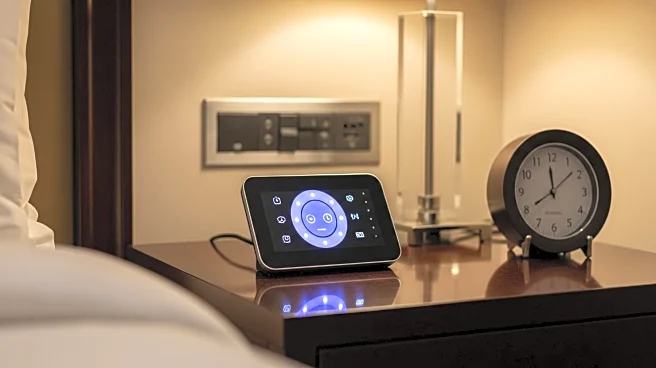What's Happening?
Hotels are increasingly integrating smart automation systems to enhance guest experiences, transforming static hotel rooms into dynamic environments. These systems utilize wireless mesh technologies, which significantly reduce installation costs and are ideal for retrofitting older buildings. Smart controls allow hotels to create personalized and responsive environments, offering guests a tailored experience from arrival to departure. Features such as human-centric lighting and IoT sensors for air quality monitoring contribute to a sense of well-being and tranquility. Additionally, sound masking technology enhances privacy and focus, creating a sanctuary for guests. This approach not only improves guest satisfaction but also supports sustainability goals by optimizing energy use.
Why It's Important?
The integration of smart controls in hotels represents a significant shift in the hospitality industry, focusing on creating memorable guest experiences through technology. By automating room features, hotels can offer personalized experiences that enhance guest satisfaction and loyalty. This technological advancement also supports environmental sustainability by reducing energy consumption, aligning with ESG goals. The financial benefits are notable, as reduced operational costs can fund further technological enhancements. This trend is likely to influence industry standards, encouraging more hotels to adopt smart automation to remain competitive.
What's Next?
As smart automation becomes more prevalent, hotels may continue to innovate by expanding the range of personalized experiences offered to guests. The industry could see increased collaboration with technology providers to develop more advanced systems that further enhance guest comfort and sustainability. Additionally, hotels might explore integrating these technologies into other areas of their operations, such as conference facilities and public spaces, to provide a cohesive experience throughout the property.











